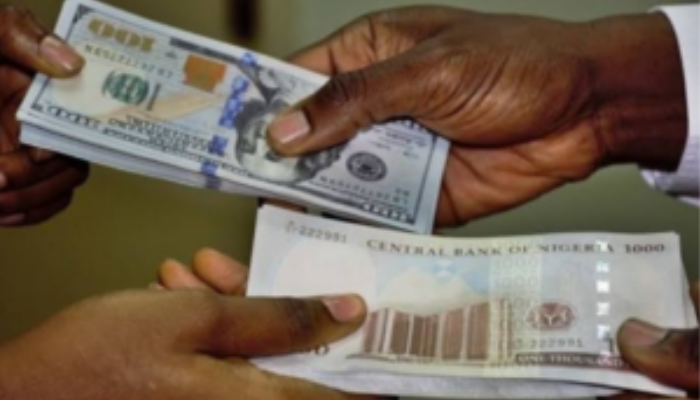The parallel market exchange rate in Nigeria has experienced a decline, reaching N1,320 against the US Dollar. This movement in the exchange rate is reportedly associated with the departure of diaspora Nigerians, and it underscores the influence of various factors on the foreign exchange dynamics in the country.
Key Points Regarding the Parallel Market Exchange Rate Movement:
1. **Exchange Rate Decline:**
– The reported fall in the parallel market exchange rate to N1,320/$1 indicates a depreciation of the Naira against the US Dollar. Exchange rate movements in the parallel market are influenced by a combination of supply and demand dynamics, market sentiment, and external factors.
2. **Diaspora Nigerians Departure:**
– The mentioned decline in the exchange rate is linked to the departure of diaspora Nigerians. The movement of individuals, especially those in the diaspora, can impact the demand for foreign exchange as they may convert local currency to foreign currency before leaving the country.

3. **Foreign Exchange Demand and Supply:**
– Foreign exchange rates are determined by the interplay of demand and supply. An increase in demand for foreign currency, coupled with limited supply, can put downward pressure on the local currency’s value. The departure of diaspora Nigerians may contribute to an increased demand for foreign exchange.
4. **Impact on Inflation and Prices:**
– Exchange rate depreciation can have implications for inflation and prices of imported goods. A weaker Naira may lead to higher costs of imported goods and services, contributing to inflationary pressures. This, in turn, can affect the purchasing power of consumers.
5. **Government Interventions:**
– The Nigerian government and the Central Bank of Nigeria (CBN) often intervene in the foreign exchange market to stabilize the Naira and manage exchange rate fluctuations. Interventions may include foreign exchange reserves management, policy adjustments, and market interventions to influence supply and demand dynamics.
6. **Economic Implications:**
– Exchange rate movements have broader economic implications. A depreciating Naira can affect businesses, trade balances, and overall economic stability. The government may need to carefully balance various economic factors to address challenges associated with exchange rate fluctuations.
7. **Market Sentiment and Confidence:**
– Exchange rates are influenced by market sentiment and confidence. Factors such as economic policies, geopolitical developments, and global economic conditions can impact investor confidence and influence the direction of exchange rate movements.
8. **Monitoring and Policy Responses:**
– Authorities, including the CBN, typically monitor exchange rate movements closely and may respond with appropriate policy measures to address challenges. Adjustments to monetary policy, foreign exchange management, and economic reforms are tools that can be used to stabilize the exchange rate.
In conclusion, the reported fall in the parallel market exchange rate to N1,320/$1 as diaspora Nigerians depart highlights the dynamic nature of foreign exchange dynamics in Nigeria. Monitoring these movements, understanding the underlying factors, and implementing effective policy responses are crucial for maintaining exchange rate stability and fostering economic resilience.
Support InfoStride News' Credible Journalism: Only credible journalism can guarantee a fair, accountable and transparent society, including democracy and government. It involves a lot of efforts and money. We need your support. Click here to Donate
